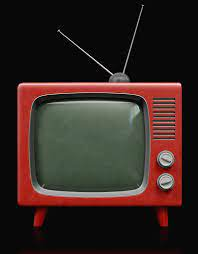Errors during the interviews are on the agenda. We are human. Nobody has a secret recipe to support a perfect interview, and therefore inaccuracies are unavoidable. However, while you are getting ready to meet your selector, it is good that you know what are the mistakes that we often find in the meeting with the candidates, so as to avoid making them …
1. Arrive late
You can study the road to get to the interview the night before, get up early in the morning and still run into unexpected events that can make you arrive late. Although some situations do not always depend on us, the lack of punctuality can compromise the entire outcome of the interview, regardless of the contents discussed during the meeting, as they show a poor capacity for time management.
My advice is to be well organized in planning your travel. Maybe you could try to go a few days before the route to the place of the interview, especially if it is in an area that is not familiar to you, and try to arrive at least 45 minutes before the scheduled time. Go to a nearby bar and use this time frame to reorganize your thoughts or review notes, to relax and take a proactive attitude. Make sure you are sitting in the reception of the company where you have to hold the interview at least 15 minutes in advance.
2. Ignore all but the selector
On the day of the interview you will come across your new potential colleagues, whether you are in the elevator or in the reception. Certainly you will turn your attention mostly towards the person you meet and on what you have to say. However, do not forget to smile at anyone who passes by. If you have time and opportunity, you could even start a polite conversation, for example.
Often, recruiters also ask their colleagues for the first impression they have had of you. Of course, they will not base the final decision on this aspect alone, but if you have left a good memory, surely it will benefit in your favor.
3. Recite the company website from memory
In the first interview you will hear the question “what do you know about our company?” Surely you have done some research and you have read the whole company website, but you really understand what their business is and you could describe it in your own words?
In addition to slavishly read the website, try to do other research on social media, on case studies or press releases of the company. This will allow you to have more content to discuss and demonstrate that you really understand how that working reality works in practice. During the interview, tell what you read and underline what has aroused your interest. All this will show that you are well involved and that you have tried to better understand the company, because you are very interested in this job opportunity.
4. Talking in a non-violent way
It is natural to be emotionally involved during an interview, to be nervous and not to be completely yourself. The fear of making a silent scene or an exaggerated pre-talk nervousness could turn into an excessive anxious energy.
Before the interview, think in your head about a scheme to answer the questions. For example, use the STAR technique (Situation, Task, Analysis, Result) when you need to answer questions about your skills. Practice answering, practice: this will allow you to remain calm and focused in your conversation, expanding all the most interesting aspects in a concise and precise way.
5. Give negative judgments
During an interview, some questions may lead candidates to talk negatively about themselves or their previous company, for example when the interviewer asked: “why do you want to leave your current business reality?” Or “tell me a episode in which you failed “.
Although I encourage candidates to be as sincere as possible, it is good to go easy in these cases. It is better to inform you in advance about what could be some tricky questions in which you could stumble and prepare the answers, always expressing them in a positive way and basing yourself on real facts. For example, if they ask you: “why do you want to leave your current job?”, You could answer: “I leave my job because, even though I have learned a lot in this role, I think I can progress more easily in a big company in my career. Compared to my current one, since it will have more growth opportunities to offer me”.
6. Do not ask questions at the end
One of the things that most annoys a selector is a candidate who has nothing to ask at the end of the interview. Prepare a number of questions to be asked during the conversation, listen carefully to the answers that will be given to you and leave some of them as an ace in the final sleeve.
It may also be a good idea to present yourself to an interview with an agenda to write down any questions that may come to your mind, while the interviewer will show you the profile of the candidate they are looking for or their business reality.
In conclusion, many of the most common mistakes during an interview are avoidable, you just have to learn not to commit them. One thing I want to say is that, despite all your best intentions, you could make a mistake. If this happens, do not self-flag yourself. It does not mean that you have completely ruined all your selective process, but that you will have learned a very precious lesson for the next time.






